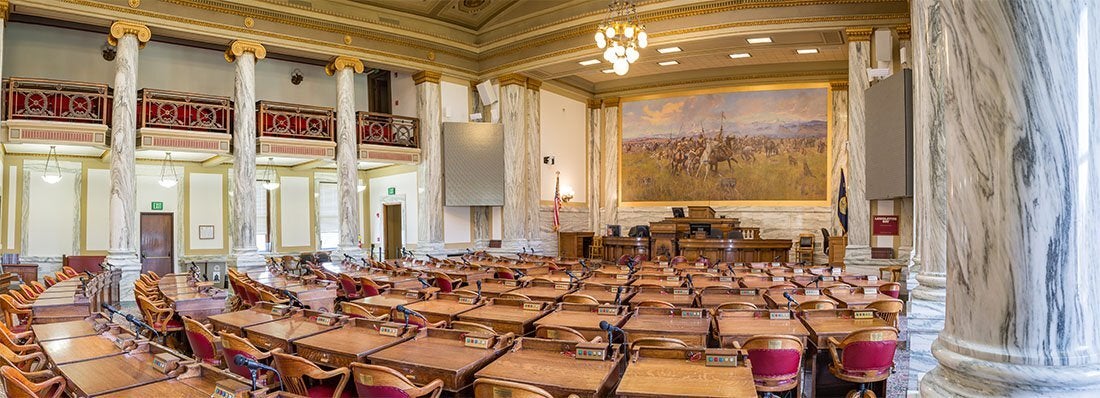TikTok is one signature away from getting banned in a U.S. state

Montana is just a signature away from becoming the first state to ban TikTok. After the bill to ban the short-form video app passed Montana's House by a 54-43 tally, the legislation heads to the desk of Governor Greg Gianforte. If Gianforte signs the bill, TikTok will not be allowed to operate within the state of Montana, and app stores in the state will be banned from offering to download it.
TikTok could be banned in Montana if the governor signs one piece of legislation
If the governor does affix his signature to SB419, as the bill is known, the ban on TikTok would begin in January. While TikTok is the target of the bill, as written it would be app stores in violation of the law that could start accumulating huge fines at the rate of $10,000 per day. Individuals in Montana who are TikTok users would not face any fines or incarceration for using the TikTok app.

The Montana House of Representatives passed a bill that bans TikTok in the state
Brooke Stroyke, a spokesperson for the governor, said, "The governor will carefully consider any bill the legislature sends to his desk." Back in December, Gianforte banned TikTok from being used on devices owned by the state government, and a month later he convinced Montana University to do the same-which it did.
TikTok released a statement citing the First Amendment while hinting about a possible lawsuit. "The bill's champions have admitted that they have no feasible plan for operationalizing this attempt to censor American voices and that the bill’s constitutionality will be decided by the courts," said TikTok spokesperson Brooke Oberwetter. "We will continue to fight for TikTok users and creators in Montana whose livelihoods and First Amendment rights are threatened by this egregious government overreach."
The bill also mentions TikTok's "dangerous content" and "dangerous challenges." Syracuse University associate professor and First Amendment scholar Lynn Greenky said that the legislation is so vague, it is "virtually unenforceable."
Besides being worried about the content spread to Americans by some TikTok creators, the U.S. government is concerned about the company that owns TikTok, a Chinese firm called ByteDance. As with any Chinese tech company, ByteDance can be forced to turn over data it has collected from American TikTok users to the Chinese Communist Party (CCP). Last year it was discovered that the iOS version of TikTok had an in-app keyboard that collects keystrokes.
Both the Trump and Biden administrations have called on ByteDance to spin off the U.S. operations of TikTok to an American company. Interestingly, the version of TikTok available in China, Douyin, is also owned by ByteDance. But that is where the similarities end as Douyin is involved in e-commerce and stays clear of the controversial content found on TikTok through censorship by the Chinese government.
Over half of the 50 U.S. states are seeking to restrain the use of TikTok
TikTok has responded to U.S. requests for ByteDance to sell off TikTok's U.S. operations by coming up with "Project Texas" which would create a firewall around U.S. data. But that will not be enough to satisfy lawmakers. More than half of the 50 states in the U.S. are seeking to restrain the use of TikTok. This worries Morgan Reed, president of The App Association which gets half of its funding from Apple.
Reed worries that "While it might begin with TikTok, it clearly won’t end there." A a technology industry group called NetChoice that TikTok is a member of, said Friday that SB419 violates the US constitution. Carl Szabo, NetChoice’s vice president and general counsel, said, "This move from the Montana legislature sets a dangerous precedent that the government can try to ban any business it doesn’t like without clear evidence of wrongdoing.
Szabo added, "The US Constitution clearly forbids lawmakers from passing laws to criminalize a specific individual or business. Gov. Greg Gianforte should veto this clearly unconstitutional law." And the ACLU also got into the act by writing a letter that said, "SB 419 is censorship — it would unjustly cut Montanans off from a platform where they speak out and exchange ideas everyday, and it would set an alarming precedent for excessive government control over how Montanans use the internet."










Things that are NOT allowed: